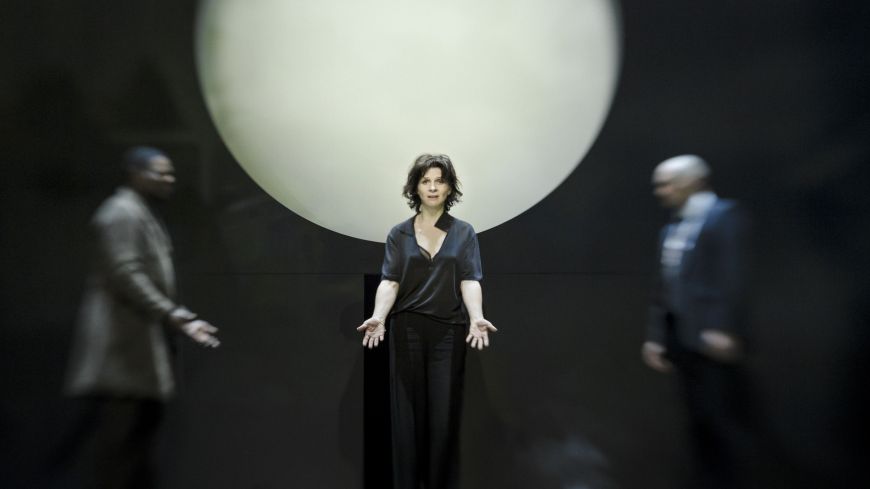
This flagship drama of the 2015 EIF, with screen star Juliet Binoche in a leading role, was highly anticipated.
Antigone is part of a trilogy, The Theban plays, originally written by the Greek philosopher Sophocles in or around 441BC, presented here in a new translation by Canadian classical poet Anne Carson.
The drama revolves around a moral dilemma where the protagonist, Oedipus’ daughter, Antigone, is brought into conflict with her uncle, Kreon, the new ruler of Thebes who has ordered that the body of Polyneices (Antigone’s brother whom Kreon considers to be a traitor) be left to rot in the elements.
Antigone, who being a woman was treated like a second class citizen, defies the order and is condemned to death.
Both parties feel righteously principled in their decisions, but each are blinded to the merits of the opposite. However, Ismene, Antigone’s sister, pleads with Kreon. He relents and orders her imprisonment.
Alongside this battle of righteous wills is Kreon’s son Haemon, who is betrothed to Antigone and who estranges himself from his father as a result of his decision.
Kreon seeks advice from the Chorus of Theban elders who responded by appealing to God’s law. The blind prophet Teiresias warns Kreon that by not giving Polyneices an honourable burial he will lose a child.
Ivo van Hove has created an arresting production. It opens with billowing clouds on a backdrop and a bare stage. Brooding organ bass notes and sound effects of an impending storm mirror Antigone’s thoughts as she enters.
This atmospheric mood, in various forms, is sustained throughout and creative use is made of the backdrop. Actors are seen in silhouette, and at other times different figures are moving in slow motion as if to enhance the gravity of the events unfolding. With few distractions we are afforded the opportunity of focusing on the words.
Juliette Binoche is convincing as Antigone, giving an impassioned performance as she implores Kreon to act with regard to the laws of the Gods, not the rigid laws of the land. Kreon, played by Patrick O’Kane, started off sounding weak but his performance gathered momentum and by the end he portrayed brilliant pathos as a broken man. Humour is essential to break a sombre tone and Obi Abili was superb as the Messenger who continually brought bad tidings to Kreon.
In Greek tragedy the chorus acted as the unified voice of reason – in Sophocles' day, fifteen was the regular number. In Carson's adaptation individuals voice advice to Kreon and consequently the impact of their speeches was not as profound as it could have been.
Overall, it was indeed a memorable, dramatic rendition of this classic play.
Til 22nd August, 7.30pm. Matinees: 2.30pm 15th and 22nd August. £17/£48 with concessions

